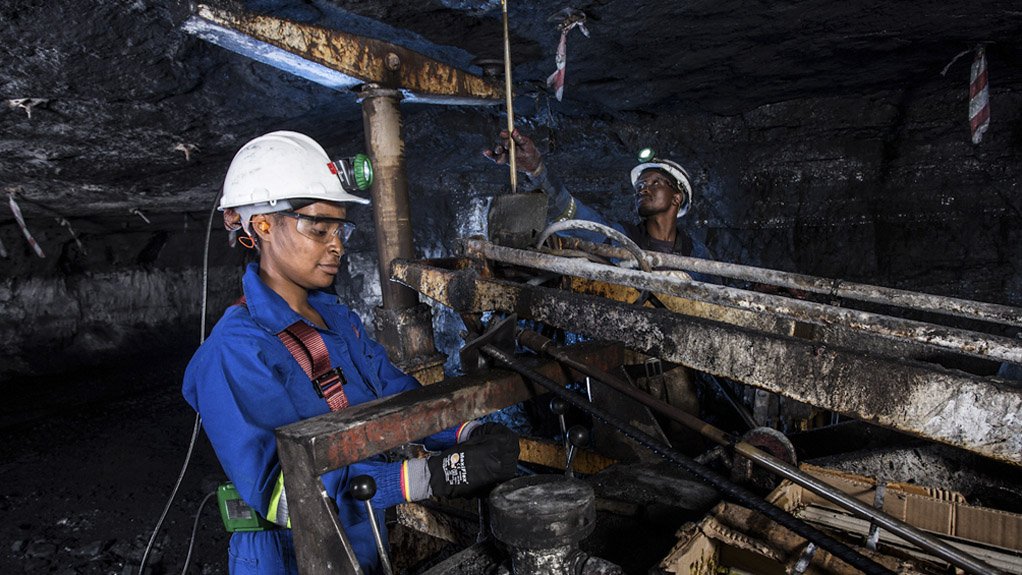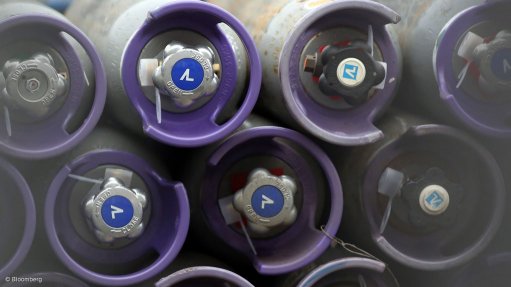Majority of women in mining still in noncore positions


SHORT OF EQUITY Several key challenges for women in the industry include foremost a lack of career advancement
There still has not been enough transformation for women in the mining industry, a sector traditionally regarded as male-dominated, suggests Sam Tambani Research Institute (Satri) research specialist Pulane Mafoea.
Speaking at the official launch of Satri in Johannesburg at the end of last month, Mafoea averred that, while the number of women active in the mining sector had increased, there was less change in terms of equity.
“A majority [of women] who work in the mining sector . . . do noncore mining activities – they are either assistants or cleaners and do not hold managerial or professional positions. Because those positions are regarded as less important and of less value, they are in vulnerable situations,” Mafoea said.
Satri launched a book, titled Challenges Facing Women in the Mining, Energy and Construction Sectors of South Africa: Persisting barriers to equity in the workplace, which focuses on the challenges that women still face in the mining, energy and construction sectors of South Africa. The book focuses on a national survey carried out by the institute and during which 2 856 women were interviewed across South Africa.
“A synopsis of the findings . . . highlighted several key challenges, which include foremost a lack of career advancement for women, followed by health and safety issues; verbal, physical and sexual abuse; discrimination in decision-making and remuneration; and family, personal and workload issues,” Mafoea said.
These challenges are attributed to supervisers and company policies.
Satri highlights key recommendations based on the findings, which include the development, implementation and monitoring of a national action plan to address gender stereotyping and bias in the workplace.
Steps should also be taken to facilitate and impart the skills needed for women to progress in the employment-level hierarchy, while the implementation of policies on equity in the workplace and against gender discrimination needed to be fast-tracked, Mafoea said. Periodical assessments on the progress made in integrating women in the mining, construction and energy sectors should also be undertaken, she added.
“Women belong in the mining, energy and construction sectors,” she said.
Research Mandate
Satri is a joint establishment of the National Union of Mineworkers (NUM) and the Mineworkers Investment Trust (MIT).
The institute was mandated to undertake research and analysis of substantive and primary issues affecting the welfare of workers and their communities, particularly workers in the mining, construction and energy sectors of Southern Africa, MIT COO Simphiwe Nanise noted at the launch.
From the research conducted, the institute is expected to produce publications and recommendations that inform policies and interventions related to the welfare of workers and their communities.
Recognising that interventions to improve the welfare of workers and their communities have become complex and require significant factual information, Satri will gather and analyse such information through its targeted research agenda.
At the institute’s launch, leadership of the NUM and the MIT briefly discussed the role that they wanted the institute to play in respect of the many challenges workers face in the country, while Satri executive research director Dr Martin Kaggwa outlined the short- and medium-term plans of the institute.
These include, but are not limited to, undertaking research and building and maintaining the capability and capacity of the institute to deliver on its mandate, ensuring prudent financial management, sustainability and relevant stakeholder collaborations in terms of research, Kaggwa said.
Comments
Press Office
Announcements
What's On
Subscribe to improve your user experience...
Option 1 (equivalent of R125 a month):
Receive a weekly copy of Creamer Media's Engineering News & Mining Weekly magazine
(print copy for those in South Africa and e-magazine for those outside of South Africa)
Receive daily email newsletters
Access to full search results
Access archive of magazine back copies
Access to Projects in Progress
Access to ONE Research Report of your choice in PDF format
Option 2 (equivalent of R375 a month):
All benefits from Option 1
PLUS
Access to Creamer Media's Research Channel Africa for ALL Research Reports, in PDF format, on various industrial and mining sectors
including Electricity; Water; Energy Transition; Hydrogen; Roads, Rail and Ports; Coal; Gold; Platinum; Battery Metals; etc.
Already a subscriber?
Forgotten your password?
Receive weekly copy of Creamer Media's Engineering News & Mining Weekly magazine (print copy for those in South Africa and e-magazine for those outside of South Africa)
➕
Recieve daily email newsletters
➕
Access to full search results
➕
Access archive of magazine back copies
➕
Access to Projects in Progress
➕
Access to ONE Research Report of your choice in PDF format
RESEARCH CHANNEL AFRICA
R4500 (equivalent of R375 a month)
SUBSCRIBEAll benefits from Option 1
➕
Access to Creamer Media's Research Channel Africa for ALL Research Reports on various industrial and mining sectors, in PDF format, including on:
Electricity
➕
Water
➕
Energy Transition
➕
Hydrogen
➕
Roads, Rail and Ports
➕
Coal
➕
Gold
➕
Platinum
➕
Battery Metals
➕
etc.
Receive all benefits from Option 1 or Option 2 delivered to numerous people at your company
➕
Multiple User names and Passwords for simultaneous log-ins
➕
Intranet integration access to all in your organisation



















